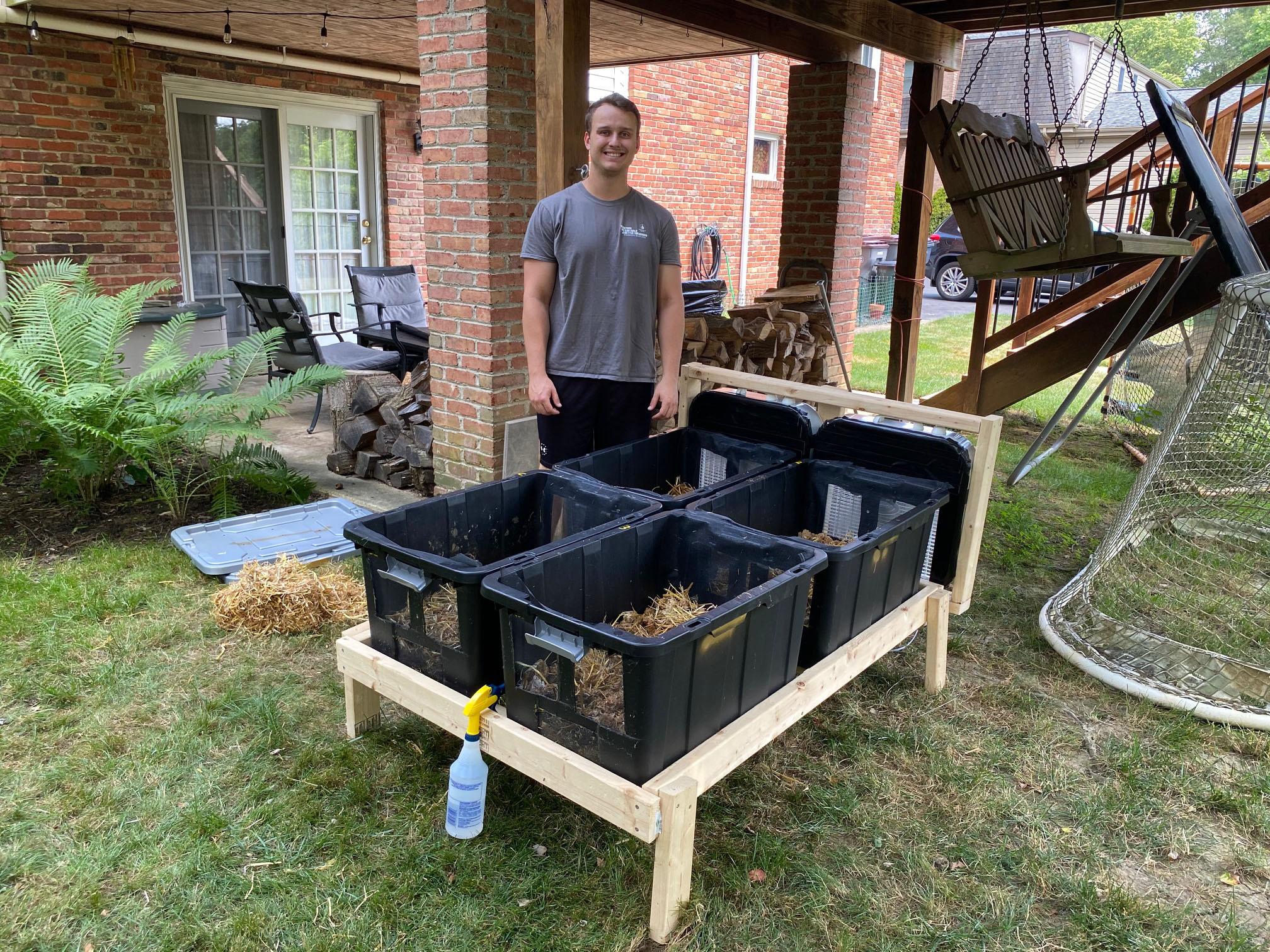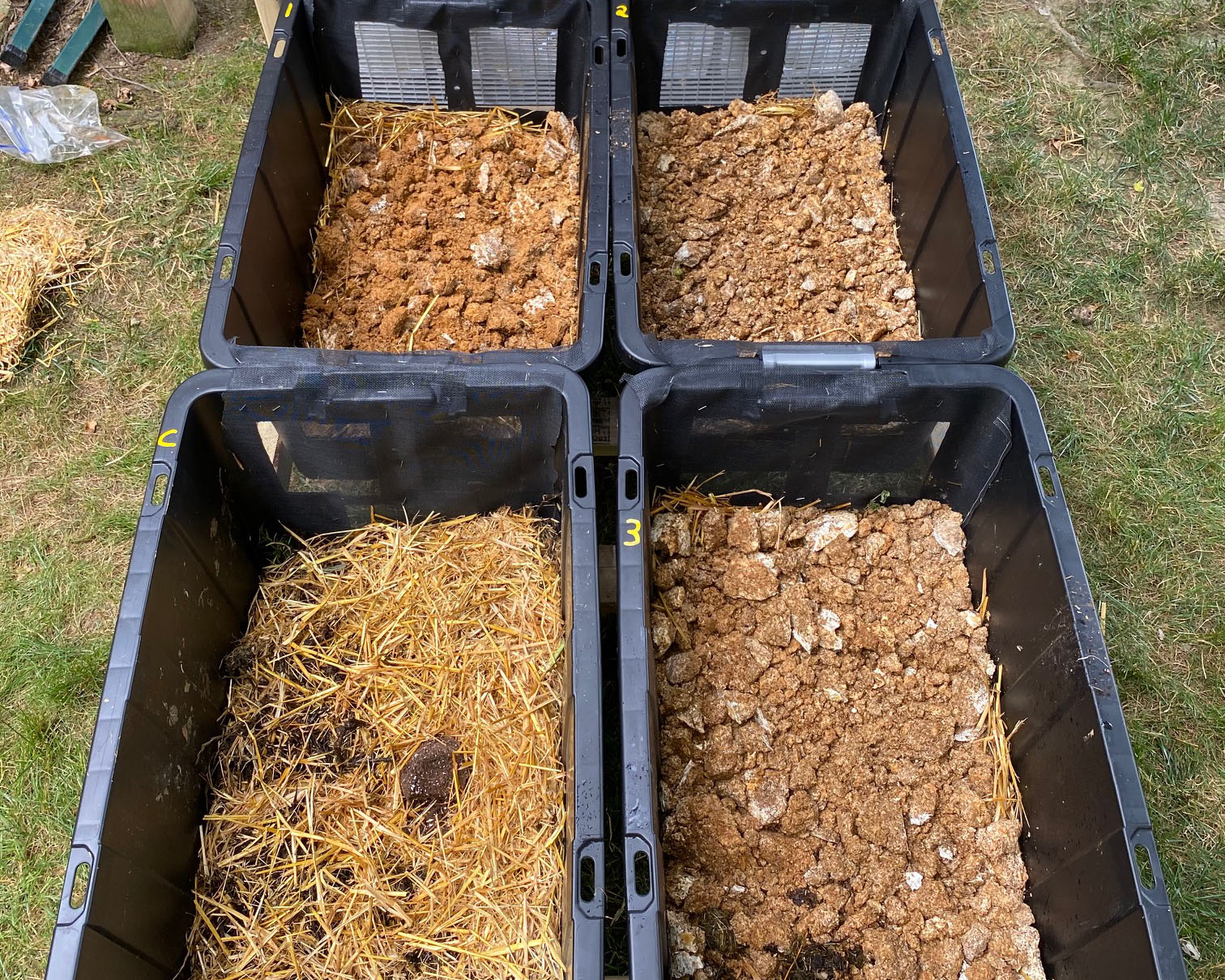Dayton Engineer

Immersed Remotely
By Teri Rizvi
Zach Gerlach never envisioned walking outside his family’s back door in Pittsburgh this summer for a School of Engineering immersion experience — let alone one that involved harvesting mushrooms.
The senior engineering technology major is growing gourmet mushrooms to help an urban mushroom farm in Dayton determine if the chemicals in the mycelium roots can be used in compost kits.
It’s a valuable lesson in bioremediation, part of an innovative effort by the School of Engineering to pair students with community organizations that are passionate about sustainability. Under a KEEN grant from the Kern Family Foundation, the 19 interns receive a $2,000 stipend and hands-on learning experiences — from creating a solar power plan to designing sustainable water catchment and retention systems, all while working mostly from home.
This is an effort that stimulates entrepreneurial thinking — “or stretching your brain,” in the words of Kelly Bohrer, director of community relations and acting director of the ETHOS Center in the School of Engineering.
Until the pandemic hit, several had planned to work with domestic partners in the development of sustainable technologies or travel abroad to places like Peru, Ecuador and Malawi to engage with local communities on energy, water and infrastructure projects. These new, remote immersion experiences require the students to build community in a different way, largely without in-person meetings with their community partners, though a few have visited sites like Agraria, a regenerative farming project in Yellow Springs, Ohio.
“How do you fill in the water cooler chat? You’re not running into someone in the hallway and trying to figure out a problem together,” observed Lindsey Temple, program coordinator in the ETHOS Center, during a Zoom video conference call with the student teams. Besides checking in weekly over Zoom on project progress, the students attend a class, “Sociotechnical Engineering for the Common Good.”
“I’m impressed by the way these engineering students are using the summer to creatively navigate through the challenges of working remotely together on projects that benefit humanity,” said Eric F. Spina, University president, noting that the projects also include designing an urban garden for young refugees and creating fun STEM experiments and lessons for students spending their summer camp at home.
“They’re driven by their desire to conduct human-centered engineering design to create positive change in the world — and they’ve proven they can accomplish that in a socially distanced world,” he said. “That takes ingenuity and the ability to work collaboratively in teams across the miles.”
Muhammad Taseen believes in that philosophy, too. “Working in groups gives us more power,” said the graduate student in chemical engineering. “We have shared values. We think about the world and the people around us.”

Zach Gerlach's gourmet mushrooms, used to help determine if the chemicals in the mycelium roots can be used in compost kits.

